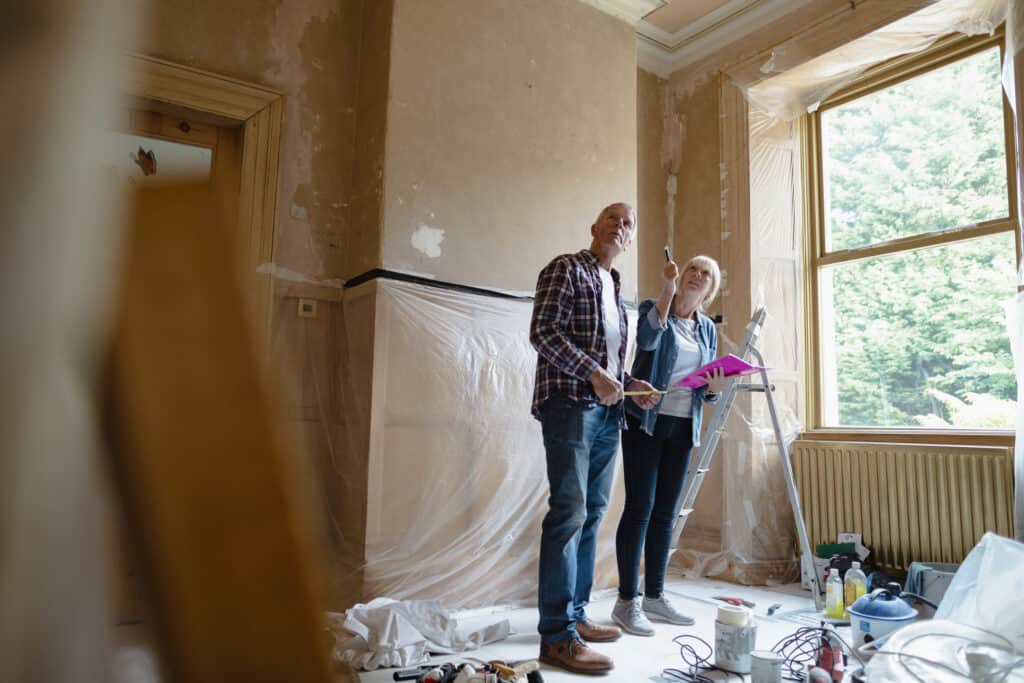
Unlike many major purchases, homes don’t come with instruction manuals. As a result, the possibility of error, especially when it comes to home renovations, is large. As a real estate broker, you can help new homeowners avoid making costly mistakes, creating repeat customers for years to come.
Spend on Inspections, Save on Surprises
If you buy a fixer-upper or an older home, take the time, and spend the money, on professional inspections of every potential problem. Get an electrician to check the wiring, especially if the house is really old, there’s been an addition or some other clue that the wiring might not quite be standard and up-to-date.
Likewise, bring in a plumber, a foundation expert, an HVAC specialist—whoever you need to check for any possible issue. If you do this before closing, you can get code violations addressed by the seller (except in some as-is situations). If these problems are left to you to solve, it’s far, far better to know going into it, than to find out after you’ve moved in and are stuck with both a disaster and a major repair in your living space.
Triage Your Fix List
That is, take the time to determine what projects or issues must or should be addressed first and what can wait until later. Focus your energy and funds on the most important repairs, then you can take the time to save up and cross off the less vital repairs (including the wants and dreams list) after the fires (and potential fire-starters) have been put out.
Free Guide: Get insights on how to increase your earning potential in real estate with this free North Carolina Real Estate Income Guide.
Fix First
Fixer-uppers are a big part of the new homeowner experience. The majority of new homeowners, especially young couples, buy into a home that needs a little work (or a lot!). If you can afford it, renovate before you move in. Major renovations such as kitchens, additions, and bathroom remodels can be hard to live with; you never truly appreciate a working sink, stove, shower, or toilet until you are stuck without, not to mention noise, dust, workers traipsing about, and other discomforts and renovations always seem to run late! Getting these things finished before you move in will save you a ton of headaches.
Paint Before Floors
If you plan on replacing the flooring or carpet, plan to do all of your paint projects first. It’s a double win: you don’t have to stress about drips and mess, and when the new floor is installed, the paint’s all dry and drip-free. If you do both of these before moving your furniture and stuff in, you reduce the risk of having anything damaged while being shifted about to allow the work to be done, and you allow the work to be done far faster and easier than with obstacles.
Expect to Be Out of Time and Over Budget
Nothing ever seems to go according to plan with a home repair: think, Murphy’s Law with a side of gremlins. Always pad your budget and your timeline with rainy day funds and rain-out days. Putting aside an extra 15% over your projected costs to cover disasters, surprises, and reconsiderations will give you the ability to adjust to new realities and “roll with the punches.” Likewise, by giving yourself a few more days to a few more weeks before the deadline can help you deal with those issues, weather complications, and other delays.
Take it from those that know: planning ahead and being proactive about your fixer-upper will save you time, money, and hassle!






